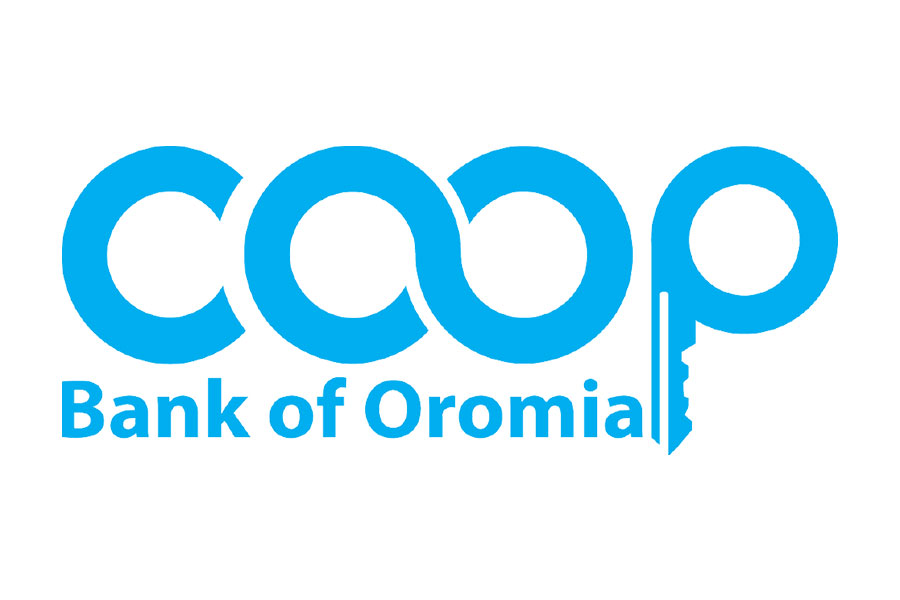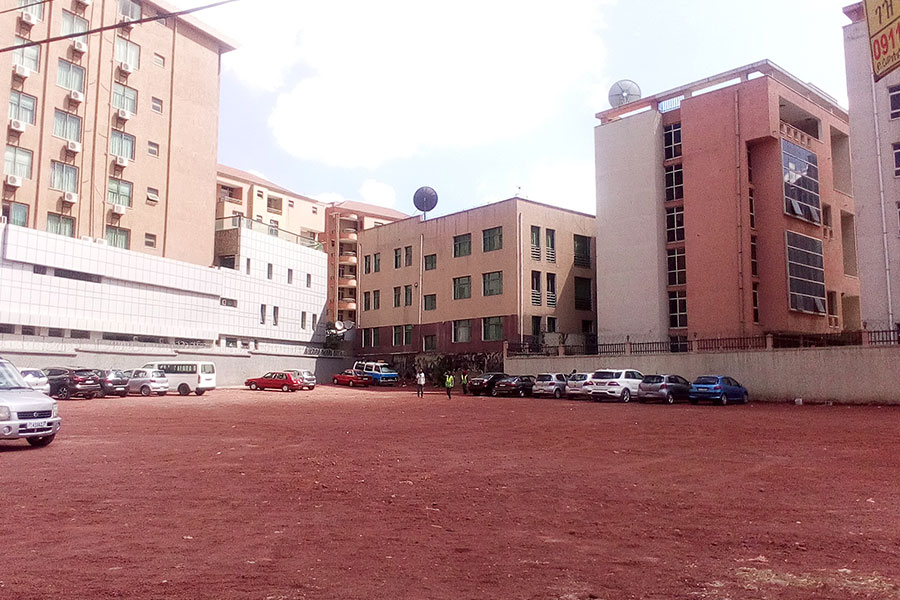
Viewpoints | Sep 06,2020
The disturbing sound of shots – from a distance – has become familiar for people residing in Dessie town of Amhara Regional State, 400Km north of Addis Abeba. Some days, the sound of heavy artillery feels like it is nearing the city of over 257,000 residents. Other days, the shots seem to move farther away.
The militarised conflict has spilt over in recent months, intensifying and engulfing Dessie and the industrial city of Kombolcha. Millions of civilians in the three regional states of Tigray, Amhara and Afar, are trapped in a crossfire between the federal army and its regional allies and armed forces out of Tigray Regional State. One such resident is Daniel, who withheld his last name, a student and altar server at a church in Dessie.
Last week, Daniel was among a large crowd flocked to commercial banks in the town. As rumours spread that banks might be closing down their branches, Dessie's residents were caught in a panic. Daniel and many others were worried they would soon lose access to banking services and rushed to stock up on cash.
“I withdrew all I had,” said Daniel, declining to disclose how much he had in his account.
It was not only the residents of Dessie crowding banks. Many of the thousands sheltered in the town after fleeing from the neighbouring zones tried to get their hands on cash before their fears came true. The war has taken a heavy toll on all aspects of life in the country's northern parts. From education and healthcare to food supply and trade, the consequences of war has been devastating. At the back of their mind could be the memory of banks' closure in Meqelle and many towns in Tigray Regional State since the start of the war almost a year ago.
Days following the war's breakout, regulators at the central bank ordered all banks in Tigray Regional State to shut their doors, claiming signs of looting. It was the first development in a long list of incidents unwelcomed by the banking industry. Commercial banks operate some 600 branches in Tigray, close to nine percent of the total number of branches in the country.
Not longer afterwards, the central bank ordered that all bank accounts opened in Tigray be frozen. An individual residing in any part of the country could not withdraw cash from a bank account opened in one of the branches in the regional state.
The closure of branches meant banks could not mobilise deposits from the region, and forex dealings stopped, putting further strains on operations in other parts of the country. Remittance flow and import-export activities were also affected in a regional state that should have channelled over eight billion Birr in taxes to the federal coffers.
This took a heavy toll on the banks, especially those with a significant presence in Tigray.
The state-owned Commercial Bank of Ethiopia (CBE) has 120 branches there, the largest network. Though the figure represents less than 10pc of its entire branch network, the war and the ensuing restrictions have been a source of concern to its executives. It runs its branch network in Tigray under two districts – Meqelle and Shire – and was forced to completely stop providing services as the TPLF took control of Meqelle and much of the regional state.
When federal forces seized Meqelle, the regional capital, four weeks into the fighting in November 2020, the CBE reopened 50 branches. Even that number was difficult to ascertain given the infrastructure damage in the regional state and communications blackout.
The Commercial Bank of Ethiopia's Hadnet branch was one of 120 closed following the outbreak of conflict in Tigray Regional State last year.
"There are reports that some branches in Meqelle are open and handling small transactions," a source at the CBE told Fortune.
Considering its size, the disruption in Tigray may not faze the state-owned giant too much. The same cannot be said for private banks.
Established 25 years ago, Wegagen Bank is among those in the industry hit the hardest. A third of the Bank's 389 branches are located in Tigray, leaving it to continue operating with remaining branches battling liquidity problems and a shortage of foreign currency. Its Acting President, Aklilu Wubet, describes it as being challenging to navigate through these tough waters.
Wegagen Bank was subject to inaccurate reports that damaged its reputation for having branches found housing firearms. The Bank later disclosed the arms were stored for security purposes, standard practice for all banks securing vaults. However, the damage was done. The Bank had lost about 2.3 billion Br in deposits as customers withdrew their savings, disclosed Aklilu.
"Thankfully, we've regained our customers," he told Fortune.
Wegagen's deposits took a serious hit nonetheless. They grew by one billion Birr to 31 billion Br, while the total deposit mobilised by the banking industry had increased by 25pc to 1.3 trillion Br. Wegagen's peers also saw more than modest growth in the past year. However, the most considerable growth rate of 41.2pc was recorded by the Bank of Abyssinia (BoA), which mobilised a little over 10 billion Br more than Wegagen's aggregate deposits.
Awash International Bank (AIB) has the highest deposit among private banks. Mobilising an additional 33.8 billion Br last year, its total deposit reached 107 billion Br.
Abdulmenan Mohammed, a finance expert based in London, says mobilising one billion Birr by Wegagen shows a not-so-impressive performance.
"It significantly affects the Bank's lending capacity," he told Fortune.
The low deposits are a factor for the Bank's liquidity concerns, causing a strain in meeting loan demands from clients. Wegagen had to seek support from the central bank, which, Aklilu applaud for having gone the extra mile to help it to stay afloat in the troubled waters.
"It was beyond my expectations," said Aklilu.
Regulators at the central bank are aware that a lot needs to be done to help the industry pull itself through these challenging times. A survey conducted before federal forces left Tigray Regional State at the end of June this year identified that many branches had been completely damaged while others were looted.
"A little over half of the branches in the region were operational until banks and the regulator lost all control and communications," Solomon Desta, vice governor of financial institutions at the National Bank of Ethiopia (NBE), toldFortune. "We discussed how to support severely affected banks and intervened to allow them to cash out their NBE bonds."
The central bank has begun converting maturing bonds to treasury bills. Bonds maturing in July 2022 will now mature as T-bills and be repaid earlier in October 2022. Banks were also paid three months returns at the beginning of October, and they are allowed to retain returns from DBE bonds maturing until June 2022.
They can benefit from this, according to the Vice Governor.
However, the conflict harms the banking industry in more ways than the closure of branches in conflict zones. Convinced that there is an active and coordinated "economic sabotage," federal authorities and city officials have taken a series of measures, including the arbitrary closure of businesses and suspensions of asset transfers.
Earlier this year, the central bank limited the number and volume of transactions individuals and companies can make, hoping to tame illicit transactions. A few months later, it was followed by monetary restrictions such as forbidding banks to provide any collateralised loans. Government officials attributed the move to a massive increase in outstanding credit to the private sector.
It had grown by 40.8pc in July 2021, while the figure for disbursement stood at 125pc. The central bank asserted the heavy loan disbursement was to be blamed for a significant uptake in "capital flight," which was subsequently exhibited in dollarisation, pushing the parallel market value of the Dollar to an all-time high of over 70 Br, a 30 Br difference from the official market.
The restrictions were not received lightly. Exasperated by the increase of reserve requirements the central bank issued last month, banks have reported their liquidity status is "below adequate."
Officials of the central bank remain adamant that they have met their goals in weakening the parallel market with these restrictions.
"These restrictions will not be here forever," Solomon said. "They'll be lifted as the conflict ends, and those sabotaging the economy can no longer cause harm."
The consequences of war on the financial sector do not stop with banks; microfinance institutions (MFIs), the vehicles used to expand banking in small towns and rural communities, have been hit as hard.
Amhara Credit & Savings Institute (ACSI) operates with 472 branches and 1,200 satellite offices across the Amhara Regional State, where a large area has seen destruction. The Institute, which has 10 million depositors, disbursed five billion Birr in loans last year to close to 69,000 clients who are now either not economically active or have been displaced.
Mekonnen Yelemwessen, the chief executive officer (CEO), estimates the Institute will require one billion Birr to recover its branches and rebuild damaged assets. ACSI does not have insurance coverage for these assets. It would not mean much if it had, for insurance firms would not be liable to settle claims for damages caused by war. ACSI is on its own for now.
"We'll seek support from the government and other sources," said Mekonnen.
This would not have come at the wrong time. Established in the 1990s, the Amhara microfinance is one of six microfinance institutions transforming itself into a full-fledged bank.
While the ACSI is the first to conduct a preliminary assessment on the damage it suffered, industry insiders caution there should be a coordinated national effort to conduct assessments, determine the damages and how to report them on annual financial statements for shareholders and regulators. Whether retail banks or microfinance institutions, they all continue to sustain losses with the war getting protracted and expanding the area it covers.
Zafu Eyesuswork, an industry veteran, observes the conflict has taken an undeniable toll on the financial sector. He acknowledges that some financial institutions have been hit harder than others, making it difficult to prescribe any remedies for the situation.
However, Zafu urges that the focus should be attaining a satisfactory degree of separation between politics and business.
For now, the two remain intertwined with devastating outcomes. The banking industry's woes in Tigray and the neighbouring states have challenged humanitarian organisations operating in the area.
According to the UN-OCHA, the amount of cash allowed to be brought by humanitarian organisations into the region is still limited and insufficient to sustain humanitarian operations. Humanitarian organisations estimated 6.5 million dollars are needed every week.
A report from the World Food Programme (WFP), another international organisation providing humanitarian assistance to war-torn areas, alludes to the same concern.
"Challenges in accessing cash and fuel hampered the humanitarian response," states the report published in August 2021. "Consequently, only 40pc of the planned beneficiaries received assistance."
Daniel and many residents in Dessie and towns across the northern region do not want to see themselves trapped without food or the means to buy it. Their desperation to get hold of cash from their savings has already caused bank runs in these areas, putting pressure on the banks struggling to remain afloat in the liquidity requirement.
PUBLISHED ON
Oct 30,2021 [ VOL
22 , NO
1122]

Viewpoints | Sep 06,2020

Radar | Jan 15,2022

Radar | Oct 05,2025

Radar | May 31,2025

Featured | Mar 30,2019

Radar | Jul 25,2020

Radar | Jun 04,2022

Radar | Mar 27,2021

Radar | Jun 07,2020

Fortune News | Jun 08,2025

Dec 22 , 2024 . By TIZITA SHEWAFERAW
Charged with transforming colossal state-owned enterprises into modern and competitiv...

Aug 18 , 2024 . By AKSAH ITALO
Although predictable Yonas Zerihun's job in the ride-hailing service is not immune to...

Jul 28 , 2024 . By TIZITA SHEWAFERAW
Unhabitual, perhaps too many, Samuel Gebreyohannes, 38, used to occasionally enjoy a couple of beers at breakfast. However, he recently swit...

Jul 13 , 2024 . By AKSAH ITALO
Investors who rely on tractors, trucks, and field vehicles for commuting, transporting commodities, and f...

Oct 4 , 2025
Eyob Tekalegn (PhD) had been in the Governor's chair for only weeks when, on Septembe...

Sep 27 , 2025
Four years into an experiment with “shock therapy” in education, the national moo...

Sep 20 , 2025
Getachew Reda's return to the national stage was always going to stir attention. Once...

Sep 13 , 2025
At its launch in Nairobi two years ago, the Africa Climate Summit was billed as the f...